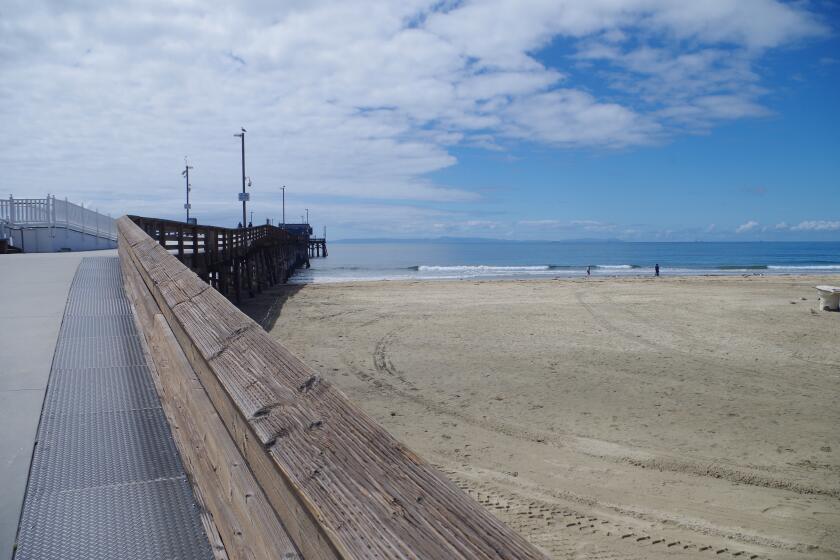Congregation discovers the cost of freedom
- Share via
Elia Powers
There they stood, the indefatigable crew of church congregants,
floored by the immediate results of their efforts.
On that mid-February day in India, the cost of freedom was clear:
$8,000.
That’s how much money the 17 travelers paid to rescue 11 Indian
women from their lives as prostitutes.
“It shows you, for someone’s life, it’s pretty cheap to get their
freedom,” said Jeff Keith, Newport-Mesa Christian Center assistant
pastor in charge of global outreach programs.
Keith said when the group originally booked the two-week trip to
the eastern part of the country, it intended to spend the majority of
the time working at an orphanage. That occupied some of the time
during the late January and early February venture, but tsunami
relief turned out to be a more pressing concern.
Toward the end of the two weeks, the travelers made a side trip to
the state of Andhra Pradesh to visit one of the country’s many red
light districts.
Rock Harbor Church members had been there a few weeks earlier and
warned the Newport-Mesa Christian Center congregants of the dismal
conditions and hapless residents.
“It was total squalor,” said Shannon Keith, Jeff’s wife. “On one
side was a sewage irrigation system, on the other side were huts with
dirt floors. The river was polluted, and that’s where people washed
their clothes.”
Shannon Keith delivered a speech in front of a group of about 75
women who had been forced into prostitution, primarily for monetary
reasons.
She said many of them broke into tears when she told them they
were loved.
“Many of them had never heard that message before,” Keith said.
Teaming up with Christian group Harvest India, the volunteers
bought food for the women and assisted in daily maintenance duties.
But church members wanted to go a step further.
So they arranged to meet with 11 women in the upstairs of a nearby
home to talk about the chance for freedom.
“We wanted to do things within the framework of their culture,”
Shannon Keith said. “We didn’t want to be a quick fix and just make
ourselves feel better.”
The congregants agreed to pay off some of the women’s debt. For
others, they paid for dowries to allow them to be married.
Shannon Keith said the group was interested in ensuring the women
wouldn’t have to return to prostitution once they left.
“We don’t want them to be relying on charitable donations from now
until eternity,” she said.
It was then that the congregants committed to financing a building
that would permanently house women transitioning from servitude to
freedom.
Two weeks ago, church members began asking fellow congregants to
donate money toward a 40,000-square-foot building that could hold up
to 200 Indian women.
Shannon Keith said the goal is to raise $150,000 by the end of the
summer.
Keith is looking to form a nonprofit organization called “Indian
Princess Project.”
She has enlisted the help of Vanguard University Center for
Women’s Studies program coordinator Tonia Collinske, who has studied
overseas trafficking.
Collinske is finding professional resources for Keith and tracking
down students who want to help with the project.
“They are on the right track, because they understand the need to
give the gift of self-sufficiency,” Collinske said.
Keith said church members are finishing prototypes of pajama
bottoms they are hoping to send to the 11 women in India. The intent
is to teach the women how to recreate the clothing, which congregants
hope can be sold for $25 to $50 in the United States.
Shannon Keith said six to 10 of the church congregants are hoping
to return to India in August.
“We still have a lot of work to do,” she said.
* ELIA POWERS is the enterprise and general assignment reporter.
He may be reached at (714) 966-4623 or by e-mail at elia.powers
@latimes.com.
All the latest on Orange County from Orange County.
Get our free TimesOC newsletter.
You may occasionally receive promotional content from the Daily Pilot.



